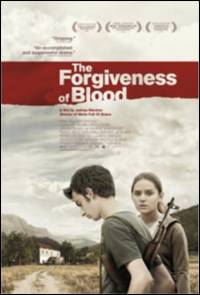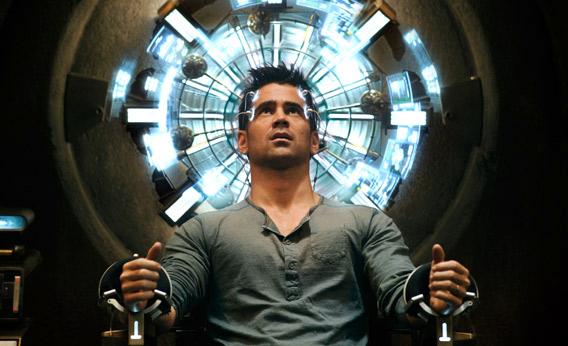
The new Albanian film, “The Forgiveness of Blood” sets itself up as a quiet domestic drama or a coming-of-age tale. Nik, the oldest son of the story’s family, has just fallen in love with one of his schoolmates. He is very popular at school and has started helping his dad with work. Rudina, his sister, is a successful student and is honing her domestic knowhow.
And then trouble starts. When Nik’s and Rudina’s father renews a years-old scuffle between a neighboring family, things turn violent quickly. One of the neighbors refuses to open his road to let the father’s horses past. When his father had owned the land, opening it to passersby was an assumed courtesy. So, choosing to keep it closed is easily interpreted as a disrespectful gesture.
Offscreen, the father and an uncle confront this man and kill him. Although we never learn the exact nature of the encounter, the rest of the film is occupied with its consequences. Violence looms over Nik and Rudina, but the film becomes more of a bildungsroman for Nik. His uncle is put in jail, and his father has gone into hiding, leaving Nik to struggle with the cultural codes of familial blood feuds, codes which seem to make little sense to Nik, his little brother, or the many women they encounter.
They make little sense to the viewer, too. This is perhaps the biggest problem with “The Forgiveness of Blood.” Writer-director Joshua Marston is critically lauded for his ability to tell stories in cultures different from his own. His debut film “Maria Full of Grace,” about a pregnant Columbian teenage drug runner, earned an Academy Award nomination for its lead. But Marston’s complete immersion into the culture of Albanian tribal blood feuds often alienates at least his American viewers.
I found myself many times wondering what some of the nouns thrown around meant. What is a besa? Furthermore, the film assumes a basic knowledge of blood-feud rules. For instance, during a blood feud, men of any age are not allowed to leave their house out of respect for the rival family’s dead. Did not know that.
However, the story at the center of “The Forgiveness of Blood” is simple enough for any viewer to latch on to. Nik is played by Tristan Halilaj – a non-professional actor – with such effortless innocence, that I bought all of his struggles and confusion. Halilaj, with his small frame and young face, was perfectly cast as a young man thrown too quickly into a grown-up world he fails to understand.
“The Forgiveness of Blood” is a solid film. The plot is relatively simple and paced deliberately. Yet, I kept wondering while watching the film what the point of it was, or rather, why Marston was so drawn to telling this story in this setting. I remain baffled. And if his choice of setting is not clearly motivated, then his cross-cultural storytelling becomes cinematic jazz hands.
2.5/4







